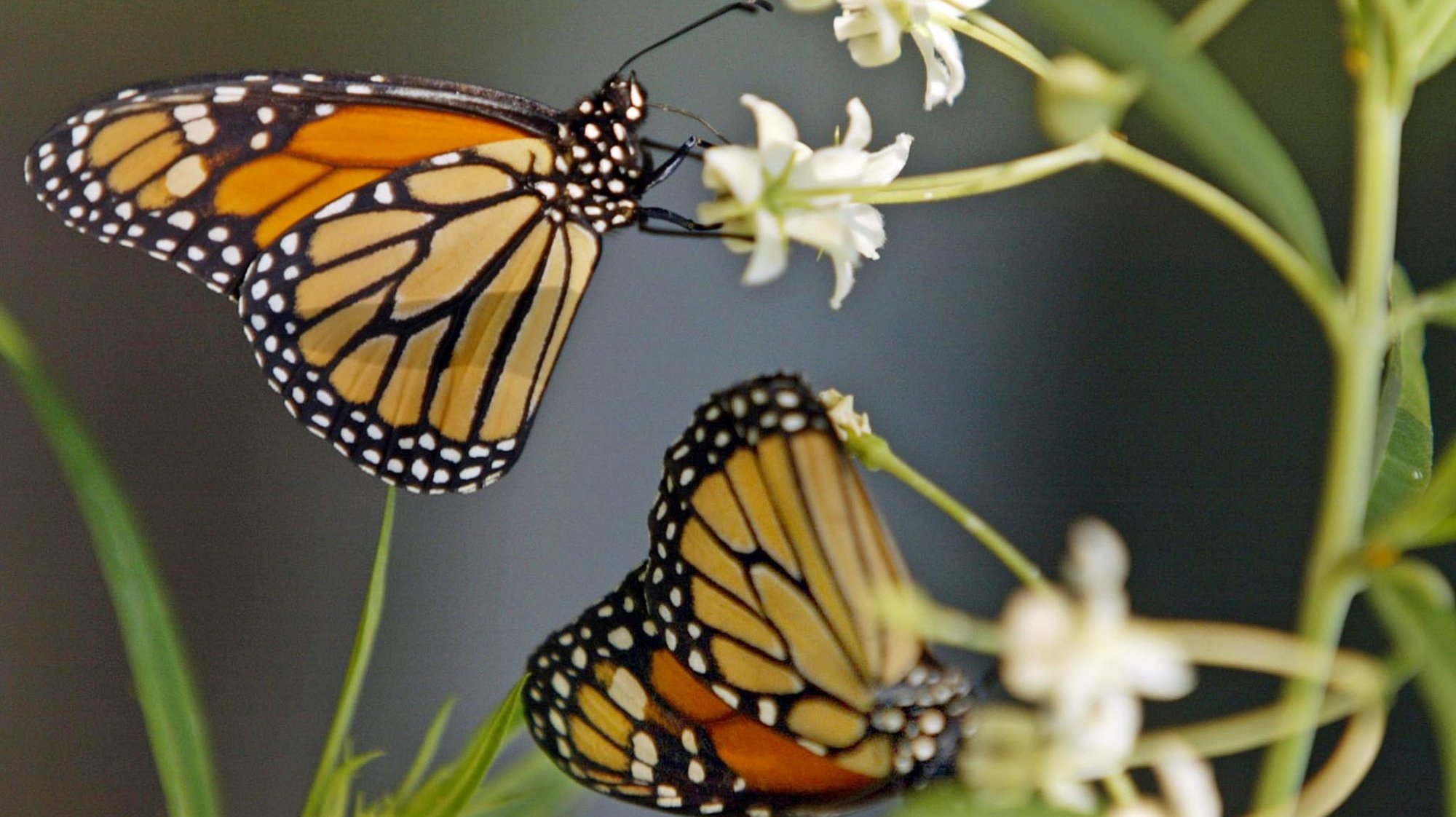The first butterfly farm in the Algarve presents more than 50 species of butterflies from around the world in an environment that recreates their natural ‘habitat’, a botanical garden with approximately 120 species of trees and plants.
As soon as they arrive at the space, opened in April and which is part of the Albufeira Zoomarine oceanographic park, visitors are immediately asked to look at the ground and walk carefully so as not to step on the butterflies, which sometimes like to “rest” on them . the land.
Inside the garden the temperature is 28 degrees, ideal for recreating a tropical climate, and the humidity is high, hovering around 70%, due to small automatic sprinklers that water the place, which makes it look like it’s fine for above 30 degrees.
As Zoomarine’s director of conservation, Élio Vicente, explained to Lusa, the number of butterflies that flutter around varies between 300 and 500, a number that changes week by week due to the short life cycle of butterflies.
“Butterflies have a very short lifespan, less than a month on average. There are butterflies that live for a week, 10 days, another three weeks”, he explains and specifies that some, like the Atlas species, do not even have a mouth, since their adult stage is dedicated exclusively to reproduction.
There you can see butterflies of all colors, sizes and origins -from Asia, Africa, America and also some that cross Europe-, and observe all the stages they go through to become butterflies: from the egg to the caterpillar. , chrysalis (or pupa) and finally to the adult state.
“Butterflies are very diverse, there are more than 350 species in Portugal during the day, but there are more than 2,500 at night”, says Élio Vicente, stressing that the adult phase, once the metamorphosis is complete, is the “most magical” of its life cycle.
The space, in addition to serving as a home for butterflies, is also a botanical garden with more than 120 species, each with its own functions: some serve to feed the caterpillars, others to lay eggs and others to help some butterflies. or caterpillars camouflaging or resting.
Some of the butterflies have already had their complete life cycle there, but every week orders arrive from different corners of the world with more specimens, always in their chrysalis state, explains Vasco Alves.
According to the technician, the chrysalises are fixed every week in the nursery, or ‘puparium’, where the conditions are met for the insects to come out of the cocoon and emerge as butterflies: here the humidity is higher, reaching 80%, but the temperature is a little lower than outside.
“Some may take 22 days to come out of their cocoons, others seven days. Here the environment is even more controlled and the humidity has to be higher to keep the chrysalis hydrated”, he explains.
People traveling there are asked to avoid touching and holding the butterflies, because the wings, made up of scales, are very fragile. However, if they land on people of their own free will, it’s “seizing” the moment, he says.
According to Vasco Alves, who also has the task of observing the butterflies, they “seem to be at ease” with visitors and react to the stimuli they see, so “some emotion” can be associated with their behavior.
Contrary to what one might think, he adds, some butterflies are also territorial, if they prefer a particular plant, they will try to defend it from other butterflies that approach and try to chase them away.
With the opening of the butterfly farm, Zoomarine, whose animal collection is essentially made up of marine animals and birds, also aims to draw attention to the importance of insects in the sustainability of the planet, as well as their fragility.
“We are talking about animals that are essential for the survival of all species that exist on our planet. Much of our food depends on pollinating animals, and butterflies, like bees, are fundamental animals in this balance of nature”, concludes Élio Vicente.
Source: Observadora
